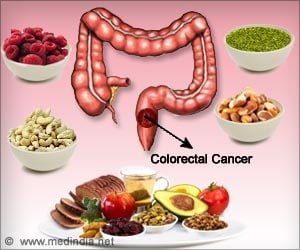What’s new in postpartum depression treatment? The FDA has approved Zuranolone, a fast-acting pill that relieves PPD symptoms in as little as three days.
- The FDA has approved Zuranolone, a new pill that treats postpartum depression swiftly
- Zuranolone works by restoring hormone balance, offering relief within days
- This medication offers a non-hospitalization option, unlike previous treatments
First postpartum depression pill approved by FDA: What to know
Go to source). Postpartum depression symptoms include a considerably sad or depressed mood, lack of interest in hobbies, feelings of guilt or worthlessness, sleep problems, and impaired focus, which can lead to thoughts of killing oneself or the new baby. Symptoms usually appear four to six weeks after birth, but they might appear up to three months later.
FDA-Approved Drugs for Postpartum Depression
Zuranolone (brand name Zurzuvae) is the second FDA-approved therapy for PPD, despite being the first tablet. Brexanolone, a 60-hour intravenous infusion therapy, was approved in 2019 (2✔ ✔Trusted SourceBrexanolone
Go to source). Because it necessitates a hospital stay, few women choose to have it.
Zuranolone pills are taken once every day for 14 days, with no hospitalization required. Early information on the drug is exciting. It seems to work swiftly. Zuranolone has been proven in studies to relieve PPD symptoms in as little as three days, with full results occurring within two weeks (3✔ ✔Trusted Source
Zuranolone for the Treatment of Postpartum Depression
Go to source). This is far faster than generic antidepressants, which can take a month or more to begin working.
This is a novel medicine class. Zuranolone is referred to as a neuroactive steroid GABA-A receptor positive allosteric modulator that, unlike certain general antidepressants, works to balance hormone levels rather than serotonin. We do not expect zuranolone to be a "wonder drug" that would treat PPD, which is a complicated illness influenced by factors such as socioeconomic stress, interpersonal strain, and general maternal health.
However, when zuranolone becomes more widely available this autumn, it could be a crucial tool in helping new mothers feel like themselves again, potentially faster.
How Does the PPD Tablet Work?
We've long used generic antidepressants like selective serotonin reuptake inhibitors (SSRIs), also known as Prozac or Zoloft, to treat PPD by raising serotonin levels in the brain. SSRIs have a long-term effect on certain patients, but not on others.Zuranolone works differently. It contains a synthetic form of allopregnanolone, which is produced by the "pregnancy hormone" progesterone and aids in the regulation of a neurotransmitter associated with mood. Allopregnanolone rises throughout pregnancy, peaks in the third trimester, and then drops suddenly after childbirth. Zuranolone restores allopregnanolone, restoring hormone function and alleviating depressed symptoms.
Is it Alright to Take Medicine while Breastfeeding?
Some new mothers may prefer cognitive behavioral therapy (talk therapy) over taking medication while breastfeeding. Moms who participated in the Phase 3 clinical trial of zuranolone were advised to discontinue breastfeeding throughout the study, so we don't know how much of the medication ends up in breast milk or how it affects nursing infants.Breastfeeding mothers who desire to take zuranolone can continue to pump and discard milk to keep their breast milk supply stable while taking the medicine. This is a personal decision that requires considering the benefits of perhaps alleviating PPD symptoms with formula-feeding for two weeks.
Side Effects of Zuranolone
Zuranolone's main negative effects are tiredness and dizziness. In new parent terminology, this implies it will be significantly more difficult to stay awake and care for the infant alone during the two weeks you are on the drug.Women who do not have a good support structure at home or have already returned to work may benefit from cognitive behavioral therapy or another form of depression treatment.
Unknowns Regarding the PPD Pill
The zuranolone trial involved 151 women and lasted only 45 days, so it is unknown whether or not the medication's advantages endure beyond that time. If a patient relapses, we will need to decide whether another two-week round of zuranolone is successful or recommended.Women in the clinical research who were previously on another antidepressant were able to continue taking it, indicating that zuranolone did not produce any harmful interactions. As a result, we will need to decide when and how to prescribe the new drug in conjunction with other prescriptions.
Manufacturers have not yet stated how much zuranolone will cost, therefore we don't know how much insurance carriers may cover. We also don't know what limits insurance companies may impose, such as requiring patients to try alternative treatments first. Currently, postpartum health insurance coverage is not widespread. Depending on the carrier, coverage may expire anywhere from 60 days to a year after giving birth.
Postpartum depression is more frequent than many women think, and it is frustratingly unpredictable - it is not your fault. If you have PPD symptoms, consult your doctor right away, and if you are having suicidal thoughts, seek emergency help.
We hope that news of zuranolone's FDA clearance will motivate more women to seek therapy for PPD.
References:
- First postpartum depression pill approved by FDA: What to know - (https://utswmed.org/medblog/postpartum-depression-pill/)
- Brexanolone - (https://pubmed.ncbi.nlm.nih.gov/31082098/)
- Zuranolone for the Treatment of Postpartum Depression - (https://pubmed.ncbi.nlm.nih.gov/37491938/)
Source-Medindia










